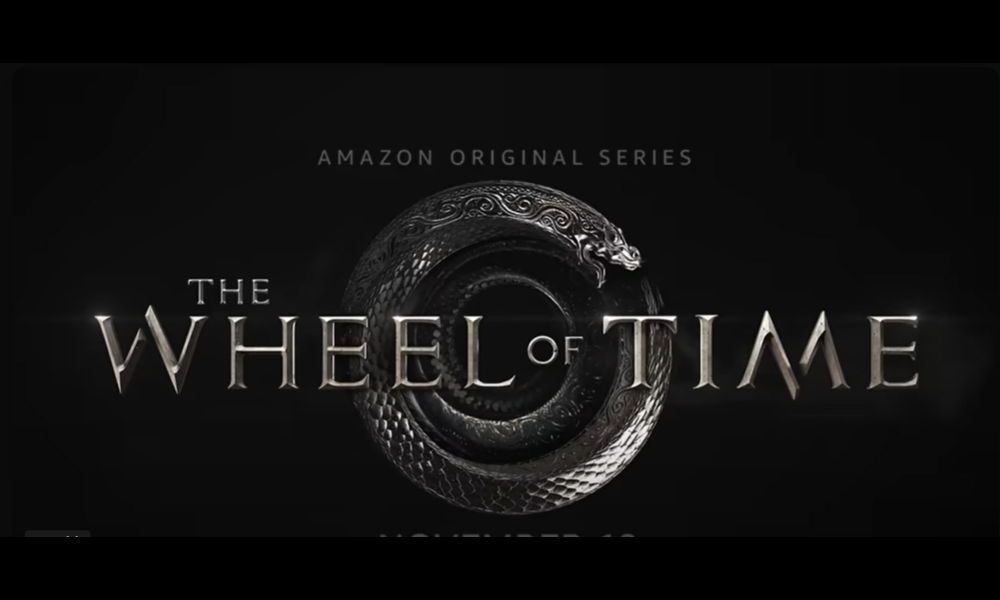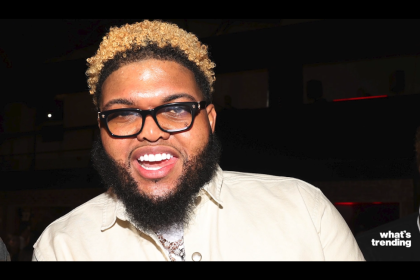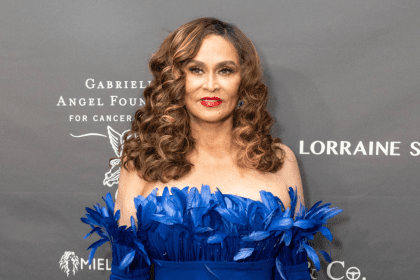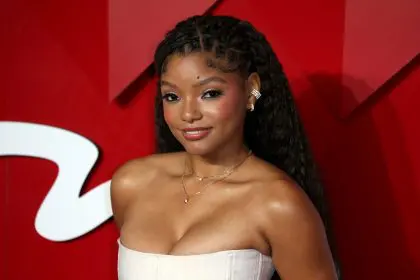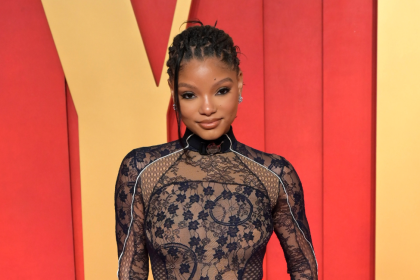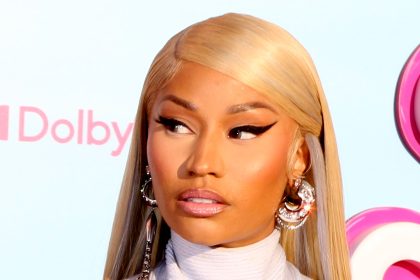You might think fantasy television is just escapist entertainment, but the casting choices in Amazon’s Wheel of Time are actually rewiring how entire generations think about heroism, power, and who gets to save the world. While you’re getting lost in the magical storylines and epic battles, something much more profound is happening that’s affecting viewers in ways they don’t even realize.
The five Black actors bringing these beloved characters to life aren’t just delivering great performances, they’re fundamentally changing the landscape of fantasy storytelling and proving that diverse casting doesn’t just check boxes, it actually makes stories more powerful and emotionally resonant. Their work is quietly revolutionizing a genre that has traditionally been overwhelmingly white.
What makes their impact so significant isn’t just their individual talent, but how their presence in these iconic roles is reshaping viewer expectations and creating new possibilities for storytelling in fantasy television. They’re not just playing characters, they’re breaking barriers that have existed for decades in one of the most popular entertainment genres.
1. Why Zoë Robins is redefining what strength looks like on screen
Zoë Robins brings something completely different to the fantasy hero archetype through her portrayal of Nynaeve al’Meara. Instead of the typical stoic warrior or mystical sage, she’s created a character whose power comes from emotional depth and fierce protectiveness rather than traditional masculine heroic traits.
Her performance challenges the idea that strength in fantasy has to look a certain way or come from certain types of characters. Nynaeve’s power isn’t about sword fighting or magical knowledge, it’s about healing, protection, and the kind of fierce love that drives people to extraordinary acts of courage.
Robins manages to make Nynaeve’s explosive magical moments feel grounded in real human emotion rather than just spectacular special effects. When she channels power, you believe it’s coming from a place of genuine care and protective instinct, not just because the script says she’s supposed to be powerful.
The way she balances vulnerability with strength creates a new template for fantasy heroines that goes beyond the typical “strong female character” trope. Her Nynaeve feels like a real person who happens to have magical abilities, rather than a magical being who’s supposed to represent strength.
2. How Marcus Rutherford is changing the quiet hero archetype
Marcus Rutherford’s portrayal of Perrin Aybara proves that masculine heroism doesn’t have to be loud, aggressive, or dominating to be compelling. His quiet, thoughtful approach to the character creates space for a different kind of male hero that’s desperately needed in fantasy storytelling.
Perrin’s internal struggle with his growing powers and the weight of responsibility he carries gets portrayed through subtle physical acting and emotional restraint that makes his journey feel incredibly authentic. Rutherford shows that heroism can be about wrestling with power rather than wielding it confidently.
His performance demonstrates how Black masculinity can be portrayed in fantasy without falling into stereotypes about either hypermasculinity or being stripped of strength entirely. Perrin is powerful but thoughtful, strong but gentle, heroic but deeply human.
The way Rutherford handles Perrin’s relationship with violence and power offers viewers a different model of how strength can be expressed. His character’s reluctance to hurt others and deep sense of responsibility creates a heroic archetype that’s both traditionally masculine and emotionally evolved.
3. Sophie Okonedo’s masterclass in portraying political power
Sophie Okonedo brings decades of acting experience to her role as Siuan Sanche, and her portrayal of political leadership feels both fantastical and remarkably grounded in real-world power dynamics. She shows how authority can be wielded with both strength and wisdom.
Her performance demonstrates that political power in fantasy doesn’t have to be about manipulation or tyranny. Siuan’s leadership style, as portrayed by Okonedo, is about making difficult decisions for the greater good while carrying the emotional weight of those choices.
The way she handles Siuan’s personal sacrifices and the loneliness of leadership creates a complex portrait of what it actually costs to be in charge. Her scenes reveal how power requires both public strength and private vulnerability.
Okonedo’s commanding presence in scenes with other powerful characters shows how authority can be expressed through competence and wisdom rather than intimidation or aggression. Her Siuan leads through knowledge and dedication rather than force.
4. Hammed Animashaun’s humanity behind the makeup
Despite being buried under heavy prosthetics to play the Ogier Loial, Hammed Animashaun manages to create one of the most genuinely warm and human characters in the series. His performance proves that great acting can transcend any amount of makeup or special effects.
Animashaun brings a gentle wisdom to Loial that makes the character feel like someone you’d actually want as a friend and advisor. His portrayal emphasizes the character’s scholarly nature and love of knowledge without making him feel like a walking exposition device.
The warmth and humor he brings to the role provides emotional grounding for some of the series’ more intense storylines. Loial becomes a source of comfort and stability in a world full of chaos and danger.
His ability to convey complex emotions through subtle voice work and physical acting, despite the limitations of the prosthetics, demonstrates exceptional skill and commitment to character development that elevates every scene he’s in.
5. Johann Myers creating unforgettable menace
Johann Myers transforms what could have been a typical fantasy villain into something much more unsettling and memorable through his portrayal of Padan Fain. His performance shows how psychological horror can be more effective than traditional fantasy evil.
The way he handles Fain’s transformation from seemingly harmless peddler to genuinely frightening antagonist creates real tension and unpredictability. You never know exactly what his character might do next, which makes every scene he’s in feel dangerous.
Myers brings an intensity to the role that makes Fain feel like a real threat rather than just an obstacle for the heroes to overcome. His performance suggests depths of corruption and malevolence that extend beyond what we see on screen.
His unsettling presence adds a psychological dimension to the show’s conflicts that goes beyond simple good versus evil dynamics. Fain becomes a representation of how corruption can transform people in terrifying ways.
Why their success matters beyond entertainment
The impact of these performances extends far beyond the fantasy genre because they’re changing how audiences think about who gets to be heroic, powerful, and complex in popular entertainment. Young viewers are seeing themselves reflected in ways that previous generations of fantasy fans never experienced.
Their work is proving that diverse casting doesn’t just serve social justice goals, it actually creates better storytelling by bringing different perspectives and experiences to familiar character archetypes. Each actor brings something unique that wouldn’t have existed with more traditional casting choices.
The success of these performances is opening doors for other actors and creating expectations for more inclusive casting in future fantasy productions. They’re not just succeeding individually, they’re changing industry standards and audience expectations.
Their presence in these roles is also influencing how fantasy stories get written and developed, encouraging creators to think more broadly about who their characters can be and what kinds of stories are worth telling.
The ripple effects that go beyond television
When major fantasy productions feature diverse casts in central roles, it influences everything from book publishing to video game development to toy manufacturing. The success of these actors is creating market demand for more inclusive fantasy content across all media.
Their performances are also affecting how existing fantasy properties get adapted and reimagined. The success of diverse casting in Wheel of Time is encouraging other productions to take similar risks and expand their own casting approaches.
The positive audience response to these actors is demonstrating to studios and networks that diverse casting doesn’t hurt commercial success, it actually enhances it by attracting broader audiences and creating more engaging storytelling.
Their work is contributing to a larger cultural shift where fantasy and science fiction are becoming more reflective of real-world diversity, which makes these genres more relevant and accessible to wider audiences.
Your viewing choices are voting for the future
Every time you watch and support shows that feature diverse casting in meaningful roles, you’re participating in a larger conversation about what kinds of stories get told and who gets to tell them. Your engagement with these performances is literally helping to shape the future of entertainment.
The success of these five actors in Wheel of Time is proof that audiences are ready for fantasy that looks more like the real world while still delivering the escapism and adventure that makes the genre appealing in the first place.
Their performances demonstrate that representation isn’t about sacrificing quality or authenticity, it’s about expanding the possibilities for what great storytelling can look like when it includes voices and perspectives that have been historically excluded from these narratives.

